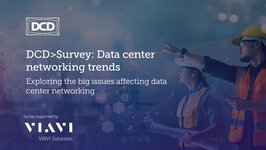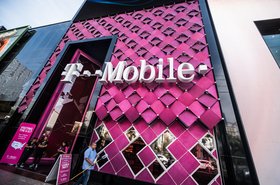Hewlett Packard Enterprise (HPE) managed to stabilize operations during its second fiscal quarter, reversing what had been a rough Q1 that resulted in thousands of job cuts, though the vendor’s $14 billion Juniper Networks acquisition remains in legal limbo.
HPE’s latest financial release showed a 6-percent year-over-year increase in revenues, which were better than expected but down sequentially. The sequential hit was tied mostly to HPE’s Server business unit, which continued to feel effects from operational challenges.
That business unit, which accounts for more than half of HPE’s total revenues, exited the previous quarter under heavy storm clouds brought on by poor execution in the face of competitive pressure. This shortfall led HPE to move on slashing approximately 2,500 jobs, or around 5 percent of its workforce, which CEO Antonio Neri stated would “better align our cost structure to our business mix and long-term strategy.”
Neri during the latest earnings call explained that the vendor has taken steps to better monitor and manage its server pricing, discount strategy, and inventory management “to improve profitability.” This resulted in HPE’s Server business hitting the top end of its impacted guidance.
“We feel that we have addressed those issues with very targeted actions that will continue to deliver results as we go through the back half of the year,” Neri said. “Examples of these actions are, on the pricing side, new analytics that give us a better insight of what comes next in our pipeline and how to price and discount those. Obviously, it's very, very stringent discounting empowerment throughout the organization.”
HPE did hit a different financial hurdle during the most recent quarter as it took a $1.4 billion “non-cash goodwill impairment charge” tied to its Hybrid Cloud operations. CFO Marie Myers explained that the charge was triggered by “the macroeconomic uncertainty that played out during the second quarter,” which caused results of its cost of capital assumptions to surge. However, Myers did add that despite the impairment charge, “our view on our Hybrid Cloud business has not changed.”
HPE’s management does expect a slight acceleration in revenue growth for the rest of its fiscal year, though some of that will depend on the legal challenge to its pending Juniper Networks acquisition.
Is there a non-Juniper future?
Neri continued to officially state that HPE remain committed to closing the deal and expects the deal to now be consummated before the end of its current fiscal year. However, that closing will be in the hands of a court, which early next month is set to hear a US Department of Justice (DOJ) challenge to the deal. Some think the decision could go either way.
That uncertainty has fed rumors of Neri’s job being in danger.
Bloomberg reported in early April that Elliott Investment Management had acquired more than $1.5 billion in HPE with an obvious intent to boost the value of that investment. Semafor followed that move by reporting that Elliott Investment sent a letter to HPE’s board asking for Neri’s removal, with the board expected to meet on that request.
Elliott Investment Management has a history of using a substantial investment stake to sway leadership at technology companies, including a hand in AT&T ditching long-time CEO Randall Stephenson for John Stankey.
When pressed on the Juniper Networks issue, Neri did acknowledge that in conjunction with HPE’s board, there has been “an ongoing dialogue on a range of issues and opportunities,” and that “we value the constructive input from all of them.”
In the same breath, Neri did attempt to fortify HPE’s financial position behind the deal by stating it’s “the fastest path to increase in our shareholder value,” and re-iterating an expected $450 million in annual run rate synergies from the acquisition within 36 months of close. But Neri also admitted that HPE is ready in case the deal falls apart.
“We also have seen and explore a number of other options if the Juniper deal doesn't happen, and that’s inclusive of capital return and other portfolio actions,” Neri said. “But we are not going to discuss those until we see the outcome of the Juniper transaction. … We are within 5 weeks of the trial, and we hope to get that resolved and start the integration of the asset.”
Juniper, for its part, did manage to show strong year-over-year growth in revenues and net income for its most recent fiscal quarter, boosted by what CEO Rami Rahim noted in a statement was a 40% surge in product orders. That growth was also attributed to the vendor’s ongoing focus on artificial intelligence (AI).
“We continued to see particularly robust demand from our cloud customers, which are investing to support AI initiatives that are driving meaningful data center and wide area networking opportunities, many of which remain in the early innings,” Rahim wrote. “This strength is being complemented by accelerated enterprise momentum, where we experienced healthy order growth across both campus and data center use cases. Based on the strong execution of our teams, and the demand signals we are seeing in the market, I remain confident in our growth prospects and ability to navigate current market conditions.”
Juniper is continuing to not host quarterly earnings calls tied to the pending HPE acquisition.
Rahim’s confidence was somewhat offset by a sequential slowdown in results. Juniper’s net revenues were 9% from the previous quarter, with net income down a more substantial 32% sequentially.




